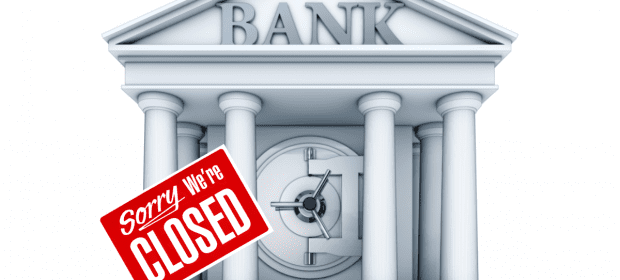Buying you dream home in France
By Amanda Johnson
This article is published on: 20th March 2024

We have a highly experienced team of panelists who will discuss all things to do with buying in and relocating to France.
I have worked with many of the panelists for a number of years and their knowledge and experience is valuable to me and my clients; so if you are looking at buying and/or relocating to France then please join us for this live webinar
Our experienced panelists are here to discuss all nature of topics to do with buying and relocating to France:
Karen Tait – Webinar host
Amanda Johnson – Wealth & tax expert from The Spectrum IF Group
Joanna Leggett – French Property Expert from Leggett
Jonathan Watson – Currency Expert from Lumon
Paulette Booth – Banking and insurance expert from AXA
Tracy Leonetti – Visa & paperwork expert from LBS
Sharon Revol – Mortgage expert from Cafpi

Tax efficient savings and investments in France
By Amanda Johnson
This article is published on: 21st March 2023

Assurance Vie in France – In most countries, tax-efficient savings and investment schemes exist with the aim of encouraging people to save for the medium and long-term so they don’t become a burden on the state.
However, when we become resident in France the tax-efficiency that we enjoyed from our home schemes is usually lost. This is because, as a French resident, you are liable to French taxes on all your worldwide income and gains, except for anything that might be exempted by the terms of a Double Taxation Treaty.
Even if certain income is exempt from French taxes, it is usually the case that this exempt income must still be declared in France and will be included with your other income when calculating your French income tax liability. The fundamental point to note is that including such exempt income has the effect of increasing the rate at which other sources of income are taxed in France, including investment income.
In France, there are several tax-free accounts available for short-term savings such as:
- the Livret A, available to both residents and non-residents, in which you can deposit up to €22,950 and earn interest of 3%. No tax or social charges are applied
- the Livret Développement Durable, eligible to French resident taxpayers only for deposits up to €12,000, also earning interest of 3%
- the Livret Epargne Populaire, eligible to French resident taxpayers only, paying an extra 6.10% interest for deposits up to €7,700 if your income doesn’t exceed a certain threshold..
For medium to long-term investments (as opposed to savings), there is one product that stands head and shoulders above the rest and that is an Assurance Vie
What is an Assurance Vie?
An Assurance Vie (AV) is an insurance-based investment product. It can be as simple or as complicated as you wish to make it. Think of it as that old shoe-box that you keep your documents in, or maybe that fireproof metal cabinet for certificates and the like. Old and battered it may be, but an AV has some rather special properties:
- The investments that you place within your AV are never touched by French income tax or capital gains tax whilst they stay inside the AV
- The majority of investments are never subject to social charges whilst inside the AV. Be aware that this does not apply to Fonds en Euros, from which social charges are deducted annually
- The AV is never locked. You can take your money out whenever you like, unlike a pension which has age restrictions
- If you keep the AV going for at least eight years, you then qualify for a special income tax-free band on top of your normal allowances, together with low withholding tax rates
- If your aim is to leave your financial assets to your chosen heirs (not just the ones Napoleon thought you should leave them to), you can leave each individual beneficiary a large sum completely free of French inheritance tax
Millions of French people use the AV as their standard form of savings and investments and many billions of Euros are invested this way via French banks and insurance companies. In addition, there is a much smaller group of companies that are not French, but have designed French compliant AV products aimed specifically at the expatriate market in France. These companies are typically situated in well-regulated EU financial centres, such as Dublin and Luxembourg. Before choosing such a company, however, it is important to establish that the company has a French fiscal representative, to ensure that you receive the same tax and inheritance advantages as a French equivalent product.
Some of the advantages of an international AV policy compared to French policies are:
- It is possible to invest in currencies other than Euro, including Sterling and USD
- There is a larger range of investment possibilities available, providing access to leading investment management companies as well as capital guaranteed products and funds
- Documentation is in English, thus helping you to understand better the terms and conditions of the AV policy
- The AV policy is usually portable which is of benefit if moving around the EU since in many cases the policy can be endorsed for tax-efficiency in other EU countries
How does an Assurance Vie work?
Your single lump sum investment or regular premiums are paid to an insurance company, which then places the money with the investment manager(s) of your choice. These are usually unit- linked types of investments, for example in equity or bond funds, but can also be in deposits or special products on offer from various financial institutions. You can invest in any number of different funds or products and these are all collated together by the insurance company to form a collective bond, which is your AV policy.
If you have chosen your investments wisely (with the help of your financial adviser), over the long-term the value of units you hold in the funds is likely to increase and so too is the value of your AV policy. However, you must be fully aware of and comfortable with the amount of risk that you are taking, since with any type of unit linked investment your fund value can go down as well as up, as a reflection of what is happening in investment markets. Over the long-term, however, the effect of short-term market volatility will usually be reduced.
Can my capital be guaranteed through an Assurance Vie?
A common feature of the French AV is the possibility of investing in Fonds en Euros. This is a special type of fund designed to form a very cautious base to your total investment, since your capital, as well as any interest and year-end bonus added to it, is guaranteed. The fund invests mostly in government and corporate bonds, although there can also be a little exposure to equities and properties with the aim of enhancing returns. During the year, your capital will earn interest and by law the insurance company must allocate most of your share of the return of the fund to your account, in the form of a year-end bonus. The balance of the return of the fund is kept in the insurance company’s reserves, to smooth out future investment returns, for example in times of poor market investment performance.
Due to the nature of the guarantees with Fonds en Euros, the rate of return is typically low, but is usually better than the interest that you might earn from a bank deposit with immediate access. However, this type of fund is regarded by the tax authorities as being so secure that social charges are levied annually on the gain (rather than only at the time that you take a withdrawal as would be the case with other investments within the AV). This effectively reduces the rate of return over the long term. Through some international AV policies there is the possibility to invest in structured bank deposit offerings, where the investment return is linked to the stock market, but with the security of a capital guarantee.
How do I choose what to invest in inside my Assurance Vie?
You may have strong views on this yourself, or you may have no ideas at all, but in all cases it helps if you have a good financial adviser at hand. His or her job is to help you understand the whole concept of investment and to help you establish your attitude to investment risk. Sadly, there is no realistic chance of a meaningful return on your savings without accepting some degree of risk. We have also seen in recent years that even leaving your savings in a bank can be risky, whether this is because you do not earn a real rate of return or because the bank fails due to poor management.
Your adviser will show you different types of investment options, explain how they work, what their track records are and how much risk is involved. You make the final decision, but his or her help can be invaluable. When the investments have been made, there should be follow-up meetings to review the performance of your investments. Your adviser may well recommend some changes depending upon the evolution of your own circumstances, or perhaps because of fund performance, or may have interesting new funds to introduce to you.
It is also possible to use the services of a Discretionary Fund Manager, with whom you agree an investment mandate (based on your specific investment objectives and risk profile), who then manages your money on a discretionary basis to achieve your financial goals.

How is Assurance Vie taxed?
Only the gain element of any amount that you withdraw is liable to income tax and the rate of tax is determined by the date on which premiums are paid.
Premiums paid before 27th September 2017:
For premiums paid before 27th September 2017, the taxpayer has the option to be taxed at the progressive rates of the barème scale or the Prélèvement Forfaitaire Libératoire (PFL) rates, as follows:
- during the first 4 years at 35%
- between 4 years and 8 years at 15%
- post 8 years at 7.5%
- social charges at the rate of 17.2%* are payable in addition
Premiums paid from 27th September 2017:
The Prélèvement Forfaitaire Unique (PFU) – also known as the Flat Tax – was introduced in the Project de Loi de Finances 2018, published on 27th September 2017. From this date the PFU applies to the total amount of interest, dividends and capital gains on the sales of shares received by the taxpayer. It also applies to certain gains on withdrawals from assurance vie contracts.
The Flat Tax rate is 30%, made up as follows:
- a fixed rate of income tax of 12.8%; plus
- social charges at the rate of 17.2%*
For premiums to assurance vie contracts paid from 27th September 2017, the tax rate will vary according to the age of the contract, and for contracts older than eight years according to the ‘threshold’ amount of capital remaining in the contract as at 31st December of the year prior to the withdrawal being taken.
The threshold amount is €150,000 per individual person (across all assurance vie policies), which is determined by reference to the amount of the premiums invested, reduced by any capital already withdrawn, and not the value of the contract.
The threshold is not cumulative between persons and therefore couples who are taxed as a household cannot share in each other’s thresholds. Thus, one spouse may reach the threshold level whilst the other does not, for example where one has say €200,000 capital invested and the other only has €80,000 invested.
The PFU applies to assurance vie contracts of less than eight years regardless of the amount of the outstanding capital. Thus, the PFU rate of 30% replaces the pre-27th September 2017 rates detailed above.
Therefore, according to the age of the contract, the following tax rates apply:
- during the first eight years, the Flat Tax rate of 12.8%
- over eight years, 7.5% up to the threshold, plus 12.8% above the threshold
* A lower rate of social charges at 7.5% applies if you are resident in France and hold the EU S1 certificate, whereby you are covered by the health system of another EU or EEA country.
Insurers are obliged to deduct the tax of 12.8% or 7.5% (depending on the duration of the contract) plus the social charges. Subsequently, for contracts older than eight years where the taxpayer has exceeded the threshold, any additional tax due is charged through the taxpayer’s annual declaration.
Tax-free allowance on all policies after the eight year holding period:
In addition to this, and in all cases regardless of the ‘premium paid’ date, after holding a policy for eight years a single taxpayer receives an income tax allowance of €4,600 per annum against the gain element of any withdrawals during the tax year. For a couple who are subject to joint taxation, this is increased to €9,200. Hence, providing that the gain element of total withdrawals made during the year does not exceed the allowance, then there is no income tax to pay. This might not sound a lot, but it is a very useful allowance, as can be seen in the following simple example.
Peter and Pam have an AV policy, which they start in January 2018 with an investment of €100,000. They do not make any withdrawals on this investment for the next eight years, and it is then worth €160,000 (hypothetical). A new car is then needed, and they need some cash to help pay for it, so they withdraw €20,000 from their AV. In this case €60,000 of their AV worth €160,000 is profit, and that is 37.5% of the total, so it is logical that the gain element of their withdrawal is €7,500 and €12,500 is their original capital.
The insurance company (assurance vie provider) will deduct income tax and social charges on the gain element when they pay out the withdrawal. Since the policy is over eight years old however, and they are subject to joint taxation, Peter and Pam have a tax-free allowance of €9,200. The gain will then be declared on their next tax return and they will receive a rebate of the income tax charged.
Does an Assurance Vie have other advantages?
Without doubt, the AV is effective for inheritance planning. There are age restrictions, but via an AV policy you can leave up to €152,500 to any number of beneficiaries, each of whom will pay no succession tax. In addition, AV policies are exempt from the strict French succession rules. You can leave your money to whomever you wish. Should you wish to leave more than this amount to any one beneficiary, they will pay tax at a rate of 20% on the next €700,000, and then at 31.25% above that.
Is an Assurance Vie right for me?
An Assurance Vie is a valuable asset, helping you to shelter your capital and income from unnecessary taxation. It can provide protection for you during your lifetime and protection for your loved ones when you are gone. However, everyone’s circumstances are different and it is essential that you take professional financial advice before investing into this type of product.
The tax and legal systems in France
By Amanda Johnson
This article is published on: 23rd July 2021

There are lots of reasons to love France …
… but the legal and tax systems aren’t high on that list!
How to manage wealth effectively, whilst minimizing administration, requires an experienced adviser with access to solutions purposefully built for the French marketplace, with due regard for t he local taxation and legal systems.
Because knowledge allows us to make better decisions, we invite you to watch the recent webinar with Quilter International.
The webinar considers financial planning options designed to help you keep more of your wealth for longer, ever mindful of the crossover with other countries, such as the UK.
As one of the leading providers of wealth management solutions, Quilter International works primarily with expatriates in around 40 countries, including France. Their speaker, David Denton, is a Fellow of the Personal Finance Society and Trust and Estate Practitioner, and has spent almost three decades in wealth management, training professional and lay audiences world-wide, on the subject of wealth preservation.
Do I need to declare my UK bank accounts?
By Amanda Johnson
This article is published on: 10th March 2020

Yes, you do. In a drive to reduce tax evasion and ensure transparency as to where money comes from, banks are now required to share details of overseas accounts, if asked by another country’s tax authorities.
All UK bank and savings accounts need to be declared on your French Tax return. You also need to declare if you have opened or closed any accounts during the last tax year.
Any interest that you have received on these accounts must also be declared. The penalties if you are found to have not declared accounts are very stiff, at up to €1500 per account.
In France, there are tax efficient savings accounts called Livret A and you can save up to €22,950 per person. The interest is not subject to French income tax or social charges and it is a perfect account for an emergency fund because you have access to this savings account without a notice period. For money that you can put aside for a longer period, it is worth getting in touch with me to discuss whether an Assurance Vie would be suitable for your needs.
Whether you want to register for our newsletter, attend one of our road shows or speak to me directly, please call or email me on the contacts below & I will be glad to help you. We do not charge for reviews, reports or recommendations we provide.
Moving to France – When should I take financial advice?
By Amanda Johnson
This article is published on: 20th February 2020

For the majority of those who move to a France, speaking to a qualified financial adviser, who is regulated where you plan to live, is something which happens after you have made the move. But, talking to one before you embark on the journey can help avoid some issues which expatriates can find themselves encountering:
Many UK based advisers are not fully regulated to offer advice for France and may not be aware of the most current regulations or tax efficient solutions for your needs.
A French regulated adviser can ensure you are financially prepared for your move, in terms of any investments, savings and taxes which can become due on both income and windfalls you may be expecting after your move.
Many people come to France with plans of using their new French property to run a business. A French regulated adviser can compare your anticipated return on investment to that from tax efficient, financial investments available.
For those planning on using the property as the main source of income, how you buy your property can have different benefits in terms of French tax rules.
A regulated adviser has no vested interest in which property you buy, yet has often a long history of experience of the path you are undertaking.
Investing an hour of two of your time before you make the move to France can provide peace of mind and financial comfort when planning a new adventure.
Whether you want to register for our newsletter, attend one of our road shows or speak to me directly, please call or email me on the contacts below & I will be glad to help you. We do not charge for reviews, reports or recommendations we provide.
Why should I review my finances
By Amanda Johnson
This article is published on: 14th January 2020

Very little has changed in my life during the last 12-18 months; why should I review my finances?
When and how often you should review your financial position is a question I often get asked by people attending my financial surgeries. There are several questions which I feel are important to consider when looking at whether you are due for a financial review:
When did you last sit down and fully review your finances?
If you have not had a review for 12 months or more, you may not be aware of legislation changes or new opportunities which may be open to you.
Have your personal plans and aspirations changed since your last review?
Are you now looking at retirement closer or wish to look in more detail at inheritance planning? Perhaps you are looking at downsizing and want to make any surplus monies work efficiently for you?
How are any investments or savings you hold performing against your expectations?
When you took out an investment or savings plan, it is likely you looked at how they had performed, and this past performance made a sizable contribution to your choices. That information is now out of date and replaced by more recent information. Reviewing this new data is vital in ensuring your money is still working for you to its best ability.
Just because your last year feels standard, you should not underestimate how external factors can influence your financial security and your ability to make the best use of any money you have worked hard to earn.
Whether you want to register for our newsletter, attend one of our road shows or speak to me directly, please call or email me on the contacts below & I will be glad to help you. We do not charge for reviews, reports or recommendations we provide.
Why is it important to have regular financial reviews?
By Amanda Johnson
This article is published on: 15th March 2019

Finding time in our busy schedules for reviewing our financial position is not always easy; however, here are some reasons why it is worth the effort and considerations in choosing who you should see.
1/ Living in France, it is important to check that you are both tax compliant and tax efficient, through proper use of savings allowances and being up to date on current tax rules.
2/ Using a company that is regulated here in France means that your advice is specifically relevant to France.
3/ Choosing a financial adviser who is also an expatriate means there are no language barriers and you both understand the experience of what it is like to have moved countries.
4/ Personal circumstances can change and regular reviews will make sure your finances are in line with your current needs. For example, you may have recently retired, be experiencing a change in your income or have just become a French resident.
Le Tour de Finance – Saumur 49400
By Amanda Johnson
This article is published on: 13th September 2018

The Le Tour de Finance roadshows give those either living in France, or in the process of moving here, a great opportunity to speak directly to industry experts who are not normally in direct contact with the public.
Where – Château Gratien Meyer, Route de Monstsoreau, Saumur 49400 (https://www.gratienmeyer.com/en/ )
When – 14th November, 2018
The event starts at 10.00am and ends at 1.30pm after a free buffet lunch.
It will offer practical guidance on a range of topics including tax efficient investments, pension transfers, estate planning, currency exchange and much more.
Register for this free event or for further information about it by sending an email with your full contact details to: seminars@ltdf.eu, register online on www.ltdf.eu or call +33(0)1 44 83 64 64
Whether you want to register for our newsletter, attend one of our road shows or speak to me directly, please call or email me on the contacts below and I will be glad to help. We do not charge for our financial planning reviews, reports or recommendations.
How do you choose a financial adviser?
By Amanda Johnson
This article is published on: 12th February 2018


Question: Can you offer me any tips in choosing a financial adviser?
When you move to France, you are moving to Country with many different laws and rules to the one you are leaving and this is unlikely to change in the future, so choosing a financial partner which is right for you is very important for your financial peace of mind.
Here are several things I would suggest expatriates consider when looking for a Financial Adviser:
Is the Company regulated in France?
With nothing yet becoming clear on how the UK will be trading with France after Brexit, using a company which is based and regulated in France reduces any need for a sudden change, should regulations change, post Brexit.
Is my adviser able to sit down with me and review my finances on regular basis?
Your Financial Adviser is not just someone to see once and then forget about. As your needs and circumstances change and with different investments growing at varying rates, being able to sit down and review your situation regularly is very important.
What are the costs involved for any appointments, reports or ongoing support?
It is important to know what costs will be involved throughout the life of any arrangement with your Financial Adviser.
How does my adviser get remunerated?
A clear understanding of how your adviser gets paid and a client charter outlining how the relationship is set up helps clarity and ensures you have no surprises down the line.
Can your Adviser offer any references from existing clients?
Being able to speak to existing customers is a great way to measure a Financial Adviser. You can hear first hand, how the process and relationship has worked for someone in the same boat as you?
Does the company own, or do its Directors/Partners have financial interests in the investments being offered, or are they truly independent?
You should be comfortable that your Adviser is not promoting any “own brand products”, without making this clear to you in advance of any commitment. If the company does have its own products be sure that you can view performance, move to another product or change Adviser without additional penalties.
Can I work with this person?
Your Financial Adviser is someone you need to be able to work with. You will likely see them on a regular basis and be comfortable speaking about your future with. In life we sometimes meet people we just cannot seem to warm to, so do not be afraid to seek alternative advice if you find yourself in this scenario.
Whether you want to register for our newsletter, attend one of our road shows or speak to me directly, please call or email me on the contacts below and I will be glad to help you. We do not charge for our financial planning reviews, reports or recommendations.
How often should I have a financial review?
By Amanda Johnson
This article is published on: 12th January 2018

There are no hard and fast rules regarding the frequency of a financial review. I believe, however, that there are several questions you can ask yourself, which may indicate that now is a good time to review your own situation:
Have my personal circumstances changed since my last review?
This can include firming up on plans for retirement, changes in your family situation, emerging health issues, a change in jobs or an inheritance. Any of these things could change what you need your money to do for you.
Do I know how the investments I hold are performing?
Have you received a recent statement and are you aware of how your investments are performing compared to others? Reviewing your finances can reassure you that you are on track.
Do I know the position of my current private pensions?
There are options available to expats which are not open to British residents. These are not right for everyone and a professionally prepared analysis is required.
The answers to of these questions may indicate that now is a good time to arrange a financial review.
Sitting down with your adviser will enable them to ensure that any investments held are appropriate for your current situation and risk profile and that you are not over exposed in certain areas.
Your adviser can also tell you how your investments are performing against other types of investment available in the market. Couple this with an ability to advise you of any changes in rules and regulations and you can see that a financial review can provide tremendous peace of mind.
Whether you want to register for our newsletter, attend one of our road shows or speak to me directly, please call or email me with the contacts below and I will be glad to help you. We do not charge for our financial planning reviews, reports or recommendations.

